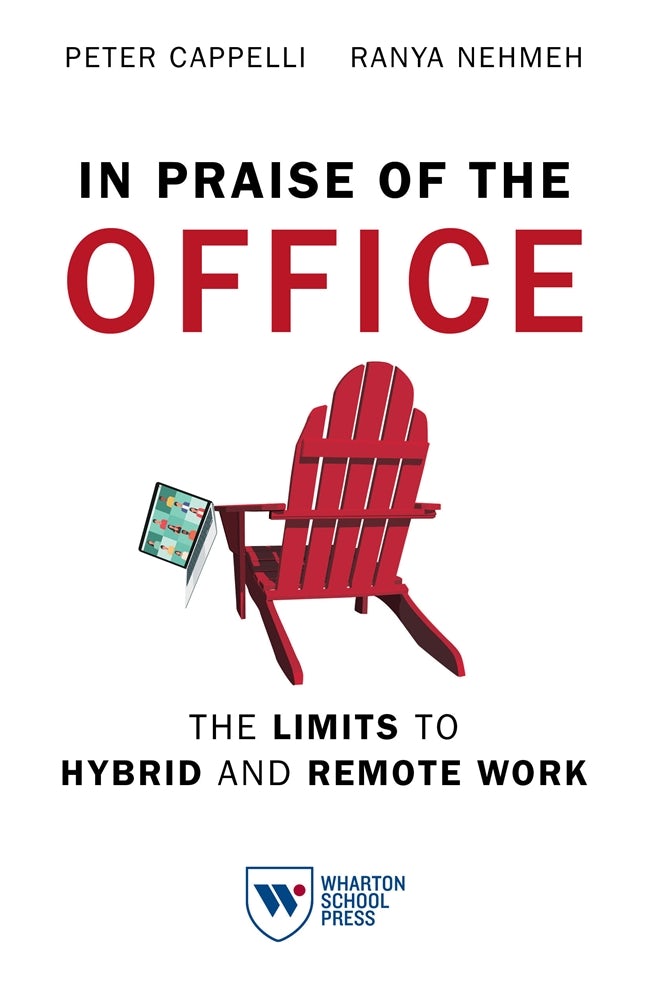
The Resurgence of the Office: A New Perspective on Work
Four years after the pandemic reshaped the way we work, many companies are now pushing for a return to the office. However, for many employees, flexible work arrangements remain a key factor in their decision-making process. This shift has sparked a growing debate about the future of work and the role of physical offices in modern business.
Peter Cappelli, a professor of management at the University of Pennsylvania's Wharton School, has co-authored a new book titled "In Praise of the Office: The Limits to Hybrid and Remote Work." In this book, he explores the business case for employers encouraging their staff to return to the office. Here are some insights from his recent conversation on the topic.
Why is the Case for In-Office Work Stronger Now?
Cappelli notes that during the pandemic, many companies experimented with remote and hybrid work models. However, as businesses began to recover, they started to see the drawbacks of these arrangements. While keeping operations running was once sufficient, it’s now clear that maintaining productivity and company culture requires more than just flexibility.
The current moment represents an inflection point for companies. They must decide whether to bring employees back to the office or continue with remote options. The longer companies delay this decision, the harder it becomes to reintegrate employees without significant resistance.
Interestingly, while some employees have expressed strong opposition to returning to the office, Cappelli suggests that this resistance may not be as firm as it seems. People often say they will quit if required to return, but in reality, most are reluctant to leave a stable income.
What’s Wrong with Hybrid Work?
One of the main issues with hybrid work is attendance. Many employees don’t show up on their designated days in the office, which can undermine the effectiveness of the model. For hybrid work to succeed, managers must take on a greater responsibility to ensure that employees are present and engaged when needed.
Cappelli emphasizes that while hybrid work is possible, it demands significant effort from leadership. Companies need to invest time and resources into managing this structure effectively.
What Changed for Employers?
Earlier, many employers were satisfied with the success of remote work. However, the labor market has shifted, making it less favorable for companies to maintain remote arrangements. The number of jobs offering remote or hybrid options has declined, and CEOs are now more aware of the potential losses associated with remote work.
Initially, after the pandemic, expectations were low, and CEOs were simply glad that operations continued. Now, they are beginning to recognize the value of in-person interactions and the challenges of maintaining a cohesive team remotely.
The Benefits of In-Person Work
There are several advantages to working in person. Human interaction plays a crucial role in learning, collaboration, and motivation. Employees gain valuable insights by observing others, understanding company values, and building relationships that support problem-solving and innovation.
Additionally, in-person work allows for spontaneous communication and quick access to colleagues. These interactions are often lost in remote settings, leading to a sense of isolation and disconnection among employees.
The Social Aspect of the Office
One often-overlooked benefit of in-person work is the development of social connections. Offices provide opportunities to build friendships and expand professional networks, which can help combat the loneliness epidemic that many remote workers face.
Remote Work: More Myth Than Reality?
Despite the perception that remote work is widespread, Cappelli points out that it’s not as common as people think. In Europe and Asia, most employees have returned to the office. In the United States, data shows that over 70% of employers have no remote or hybrid workers, although this figure may be outdated.
Remote work is primarily found in large cities and big companies, and it tends to be limited to white-collar roles. It is not a universal solution for all industries or job types.
The Future of Work: Not Remote?
Cappelli argues that the future of work is not entirely remote. While there are some companies that operate fully remotely, these are typically startups that have established strict guidelines for behavior and communication. Managing such models requires significant oversight and effort.
Advice for Employers and Employees
For employers, Cappelli advises that successful remote or hybrid work requires intentional management. It involves setting clear rules, investing in leadership, and creating practices that support productivity and engagement.
For employees, especially those starting their careers, he recommends considering in-office positions. Remote work may become less appealing as companies begin to question the necessity of full-time employees, potentially shifting toward contract-based arrangements.
As the landscape of work continues to evolve, both employers and employees must adapt to new realities and find ways to balance flexibility with the benefits of in-person collaboration.
0 comments:
Ikutan Komentar